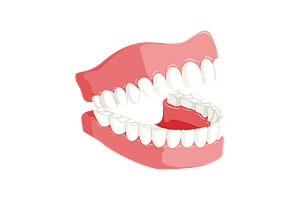Mistakes to Avoid After Getting Dental Implants

Getting dental implants can be a life-changing experience. They restore not just your smile but also your confidence. However, the journey doesn’t end once you leave the dentist’s office. Dentist London and in other regions will tell you that aftercare is crucial for ensuring that your new implants are successful and long-lasting. Many patients unknowingly make mistakes during this critical recovery period, which can lead to complications down the road. One should understand what pitfalls to avoid so they can enjoy all the benefits of dental work without any unnecessary stress. Below are some common mistakes people make after getting dental implants and how to avoid them.
Ignoring Post-Operative Care Instructions
After getting dental implants, your dentist will provide a set of post-operative care instructions tailored to your needs. These guidelines are not merely suggestions; they are essential for promoting healing and success. Many patients overlook these instructions in the excitement of their new smile. This oversight can lead to issues such as infection or improper healing. Following directions regarding diet, oral hygiene, and medication is vital. Paying close attention to how you care for yourself during this time makes all the difference in achieving optimal results. Neglecting these crucial steps may result in setbacks that could have been easily avoided with a little diligence and care.
Engaging in Strenuous Activities Too Soon
After getting dental implants, it’s tempting to jump back into your routine. However, engaging in strenuous activities too soon can jeopardize the healing process. Physical exertion increases blood flow and may lead to swelling or bleeding at the implant site. It can complicate recovery and even affect the success of your new teeth. It’s crucial to listen to your dentist’s advice regarding activity levels post-surgery. Give yourself time to heal properly. Your body needs it, and so do your implants. Rushing things could result in discomfort or unexpected complications that extend recovery time. Prioritize restful days after surgery for better long-term results.

Ignoring Signs of Complications and Skipping Follow-Ups
After getting dental implants, staying vigilant about your recovery is crucial. Ignoring signs of complications can lead to serious issues down the line. Pain that worsens instead of improving should never be brushed aside. Swelling or redness around the implant site may indicate infection. It’s essential to monitor these symptoms closely.
Skipping follow-up appointments can hinder your healing process. These visits allow your dentist to assess how well the implant integrates with your jawbone and general oral health. A minor issue today could escalate into a massive problem tomorrow if left unchecked. Regular check-ups help catch potential complications early on, ensuring a smooth recovery journey. Your oral health deserves attention, and you should not let negligence derail it.
Conclusion
Going for dental implants is a significant step towards restoring your smile and confidence. However, it’s crucial to be mindful of what comes after the procedure. Avoiding common mistakes can ensure that you enjoy the full benefits of your new teeth. Taking these precautions will help pave the way for long-lasting results with your dental implants. Remember, investing time in proper care today means enjoying a healthier smile tomorrow.



